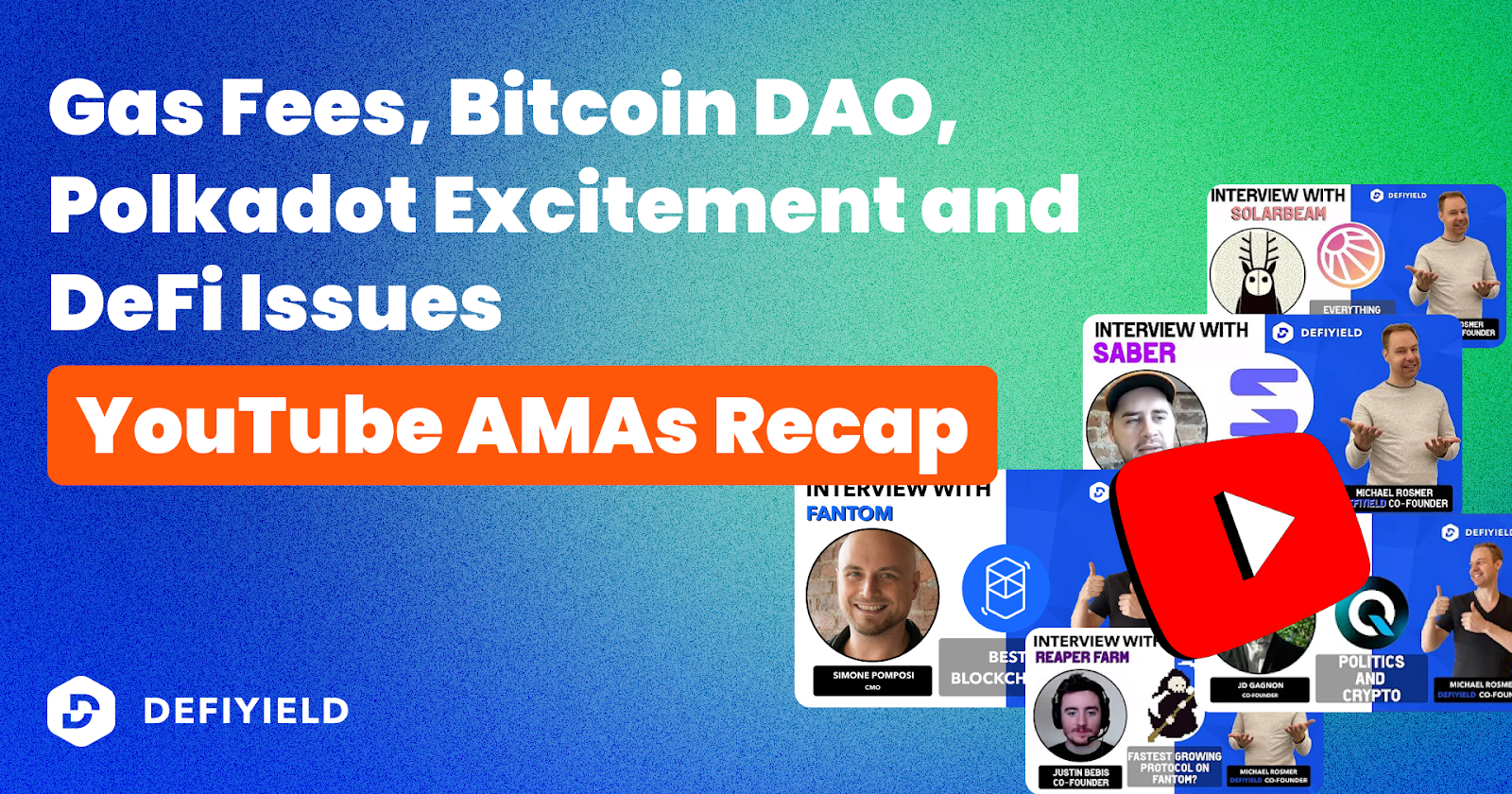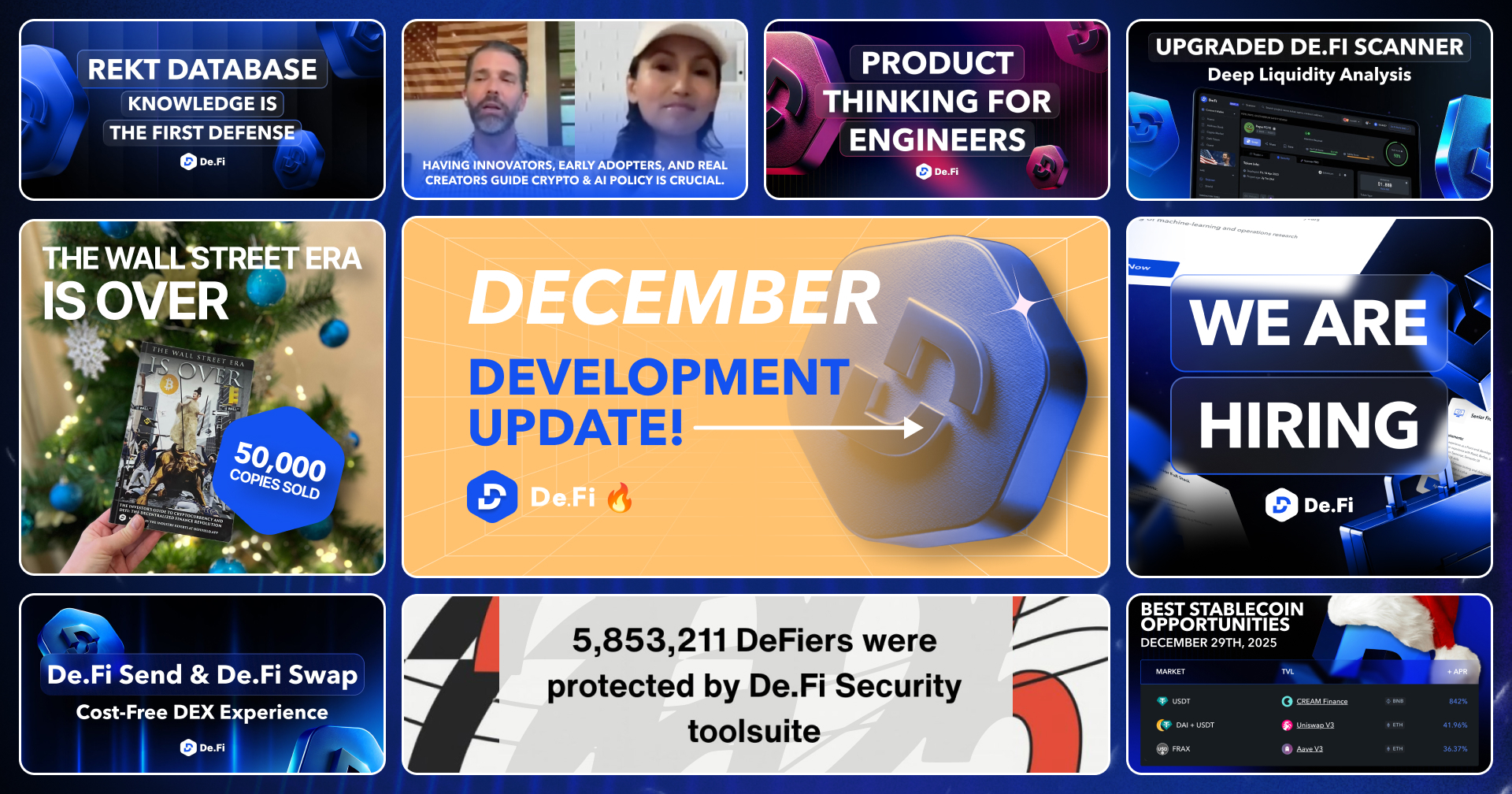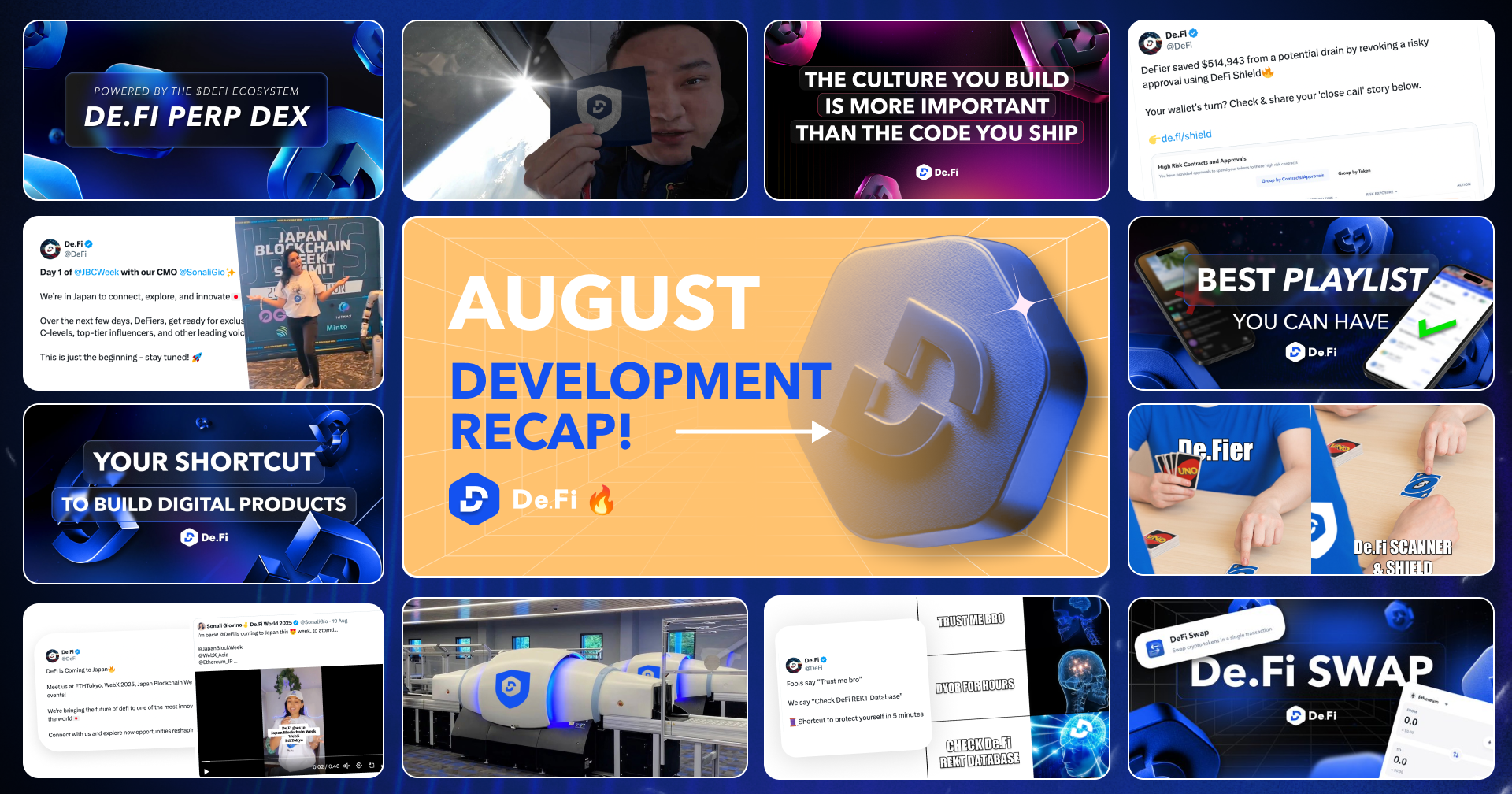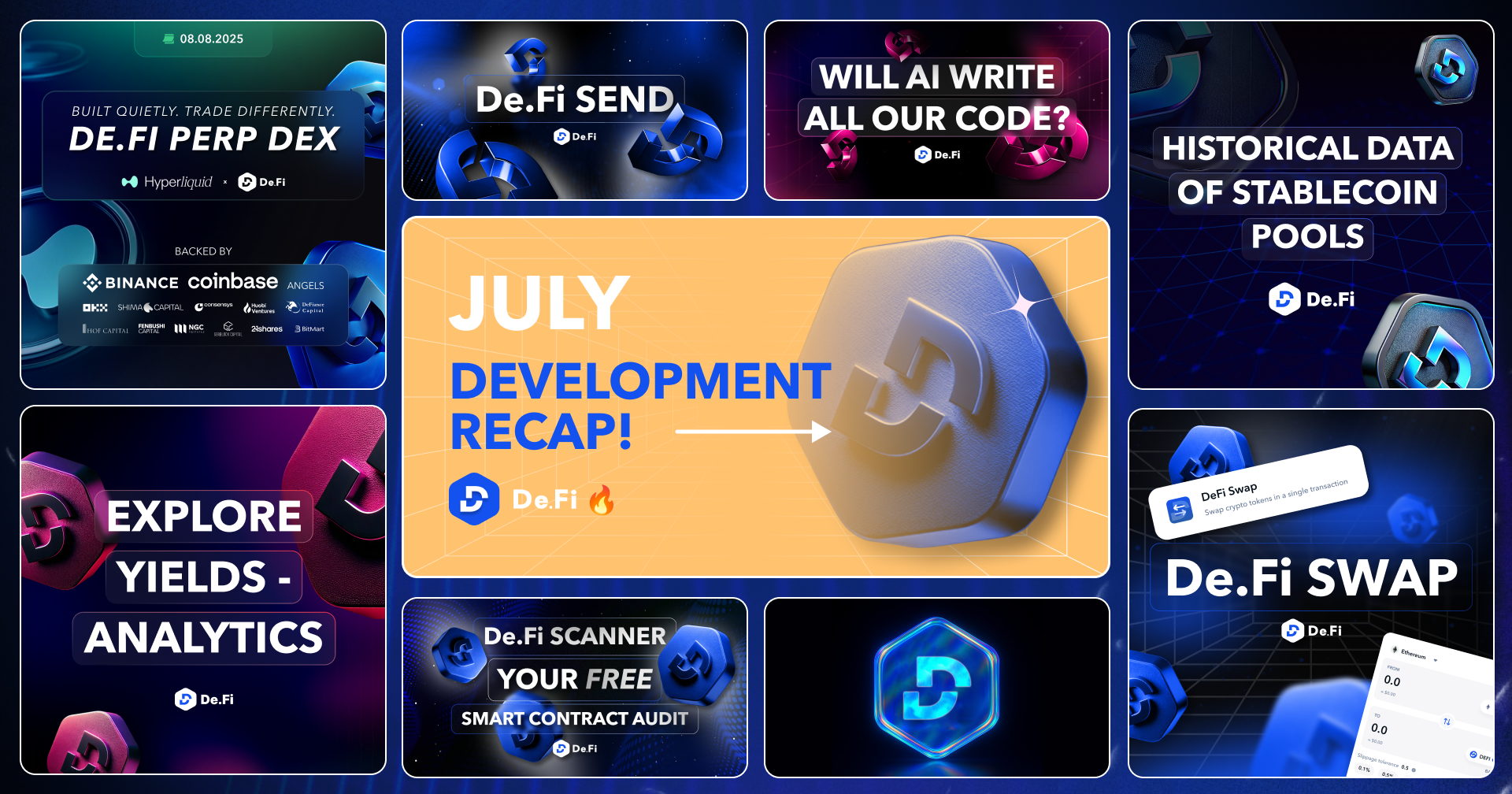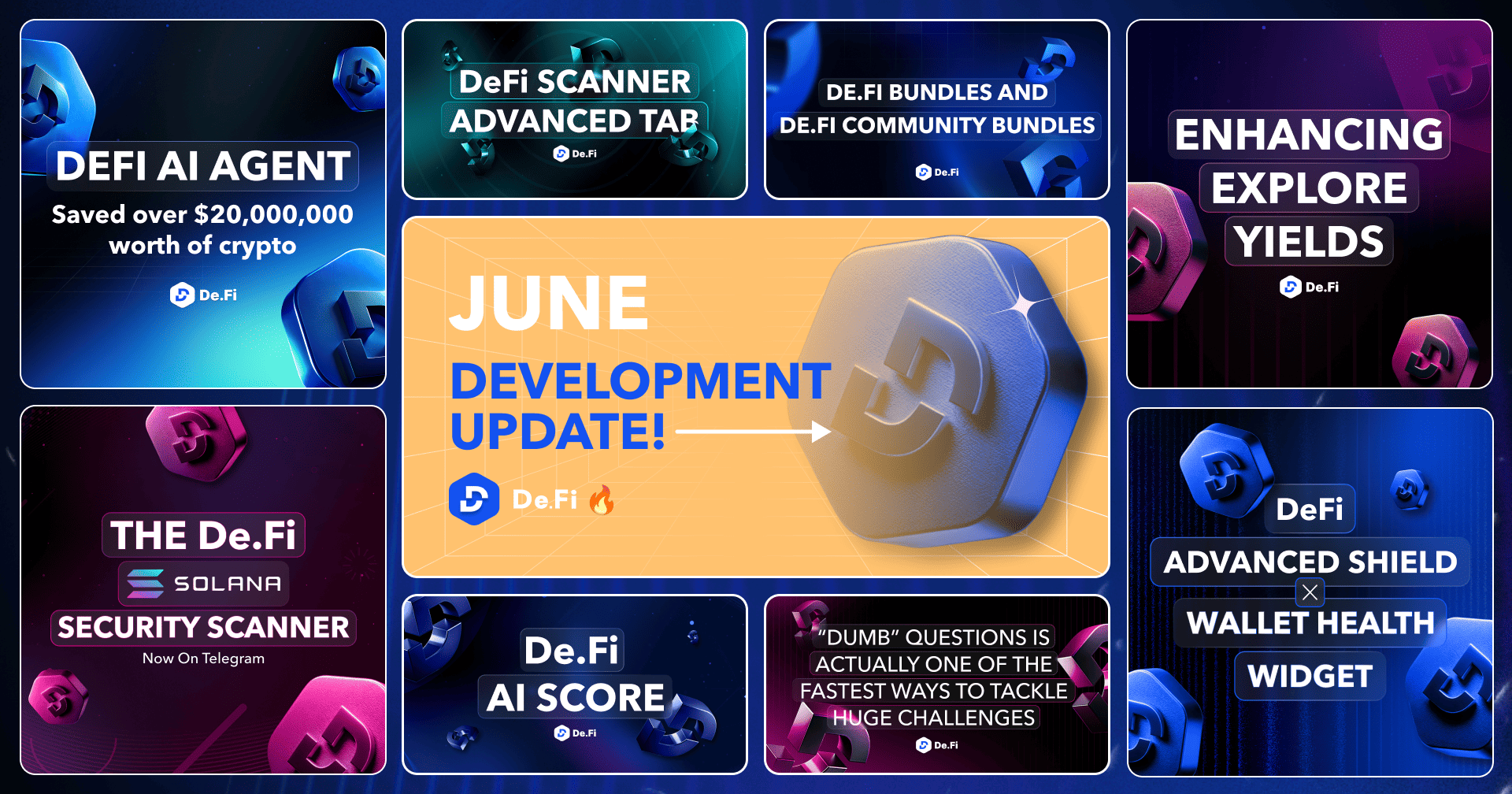Key takeaways from the AMAs on the De.Fi Channel
Hello, Farmers!
This month, as for the previous 6 months, we had quite a lot of meaningful conversations with the leading DeFi protocols and chains team members.
On our Youtube channel you can find interviews with Bancor, Harmony, Fantom, Autofarm, Near Protocol and more founders and team members.
Today, we want to share some thoughts we find interesting with you.
Why Some Chains Gas is High and Some Chains Not?
Michael Rosmer, De.Fi| As things scale, as things are going on on Fantom, what keeps the cost low?
Fantom’s CMO Simone Pomposi | Of course, when Fantom price was 10 times lower than now, the gas fees were cheaper than they’re now. And the reason is simple. We need to make a pretty big differentiation now. The underlying technology, the Fantom consensys can handle pretty high input. However, at Fantom and other high performance EVM-compatible chains such as Avalanche, we do artificially cap the gas per block. There’s a set amount of gas per block. As the usage increases and FTM token goes up it makes transactions more expensive.
The reason why the gas per block is artificially capped — it is due to the storage issue. If it was uncapped, and say we had a very high usage of the network, the validator nodes couldn’t really keep up with the storage to store all the past transactions.
Is BITCOIN a DAO?
Michael Rosmer, De.Fi| When I think about Bitcoin, I think that all forms of government tend toward aristocracy. In bitcoin you have the bitcoin core devs and there is actually a small group of people who are making the majority of decisions about how Bitcoin is going to play out. That’s just the reality. I think the advantage is that you can sit there and you can say “Okay”.
One of the interesting things that emerges and we discover as we try to build something new is that there’s a lot of embedded wisdom in complex systems from the past. So, in other words, you’ve gone through this whole long journey and there have been so many problems that have come up and you’ve got these little stacks on top of each other’s solutions which has led to this thing that you might say “Hey it’s flawed”. And it probably is flawed. but there’s also a lot of wisdom there.
And so as we go, we try to recreate governance through DAOs. I notice we end up in situations where we’re like “Oh, hey, you know, everybody should be able to vote”. And then what do you find out? Will you find you get “Oh, hang on, it’s actually probably good to have professional voters, people who are like elected representatives who can be on top of it all time, and have some degree of confidence”. Also if you’re going to pay attention and at least vote all the time because you’re not going to have time to keep up on the 50 different things that are going on.
But I think the thing that we get with a DAO is a little bit more fluidity. So if I think about it, if you’re in your county or your state and you vote for a representative, that’s basically vote delegation. But the problem is if halfway through the term I decide “Hang on this person’s a, I don’t want them in here, I can’t revoke that until the next election. Whereas with DAOs I could revoke it immediately. I can choose someone else or vote myself. And I think it’s better.
Business Developer Alex from Saber | The one thing I think is that a lot of people are realizing is that the speed of our traditional institutions is not the speed of the world. I really really dislike the Chinese Communist Party, I think that there is almost no organization more fundamentally reprehensible than the CCP.
However, even a broken clock is right twice a day, the CCP is responsive no matter what you think about all these horrible things they’re doing. One of the things that they understand quite intuitively, and there’s a lot of wisdom in this, is that they can just respond to things, because the system is set up that way to respond to people’s actual needs in real time as opposed.
As our technology gets so much more advanced and as it primarily just moves so much faster than everything else, there is just this linear lingering question about how do we govern and, with the embedded wisdom that we have about traditional institutions, how do we learn from the past recognizing that it was at the speed of essentially madisonian democracy.
So it’s going to be really challenging. I think that the Web3 governance stuff is going to be one of the most challenging and interesting spheres where there’s just a lot that’s going to happen that we would have never anticipated.
What are the Key Things That Make DeFi Unsafe?
Reaper Farm’s Co-Founder Justin Bebis |
People move too fast. It is the number one.
They don’t do the math necessary to figure out “If we emit this many tokens among this many people, we can estimate the average person has this many tokens, and how much liquidity do we need so that if 10% of these people or 20% of these people dump their token, we don’t go minus 50–60–70%”.
Michael Rosmer, De.Fi| It’s a token emission problem that drives this.
Reaper Farm’s Co-Founder Justin Bebis | The model right now is like “Okay, we are going to emit 20–30% of our supply in the first few months just to drum up excitement”.
That’s how you see the massive run-ups and the rundowns and then there’s also the problem of internal collusion. You’ve got developers that are telling all the friends “Yo let’s whip this thing up, it’s going to be so fast, it’s so easy, let’s just take this token out and make a million dollars”. And it’s not that easy to do.
Public Accountability in Crypto
Michael Rosmer, De.Fi| The scams are not just in crypto. I’m talking about traditional finance. There’s all kinds of people who go and raise a bunch of money, they understand the securities laws, they understand asset protection and they know how to guard themselves so that they can say “Ah, the project didn’t work”. The investor signed a little agreement that said “I agree this is a risky investment. I can lose all my money and that’s that”.
They basically go from one project to another raising a bunch of money, scamming people for a few million bucks and they go on to the next one. I’ve seen this for decades. There should be accountability there and if you amplify that by saying “Hey, listen, I can have anonymity now and so I could pop up with some new pseudonym here and there!”.
Benqi’s Co-Founder JD Gagnon | I completely agree with you. Again there’s two two camps on this. There’re people that think that anonymous projects are going to be the future of blockchain. I vehemently disagree. There’s a reason that all of my projects, anything I’m involved in — I am appearing publicly in.
That’s the minimum standard — if you want to participate and raise funds, and operate protocols or influence protocols where people are investing money — you should at the very least have public accountability.
Why Be Sure About Polkadot?
Michael Rosmer, De.Fi| What is your thing you are bullish and interested in about the Polkadot ecosystem?
Solarbeam’s Founder Firekid | Ethereum was a genius idea, nobody can argue that. However, Ethereum was not prepared to scale that’s why right now we face extremely huge fees which makes it unapproachable for an average user.
Gavin Hood- we all know that he helped to create Ethereum, he’s the one who made solidity — he actually predicted that scalability will be an issue.
And I think that the person who is so skilled and who sees so far ahead will be successful and take everything into account. That’s why he limited parachains on Polkadot.
Check our guides:
Tezos Ultimate Yield Farming Guide [Infographics]
Solana Network Ultimate Yield Farming Guide [Infographics]
Fantom Network Ultimate Yield Farming Guide [Infographics]
Huobi ECO Chain Ultimate Guide for Yield Farming
Polygon Network Ultimate Guide for Yield Farming
Binance Chain Ultimate Guide for Yield Farming
EOS Ultimate Yield Farming Guide
Arbitrum Ultimate Guide [Infographics]
The Ultimate Yield Farming Guide For Terra Blockchain (Luna) [Infographics]
The Ultimate Guide to Avalanche Network
Ultimate Guide to Yield Farming on Harmony (with infographics)
Ultimate Guide to Tron Network [Infographics]
The Ultimate Yield Farming Guide For Moonriver Network
The Ultimate Yield Farming Guide For Celo
The Ultimate Yield Farming Guide For KuCoin Community Chain
The Ultimate Yield Farming Guide For NEAR Protocol
And join us on twitter and telegram!
Good luck in farming!
